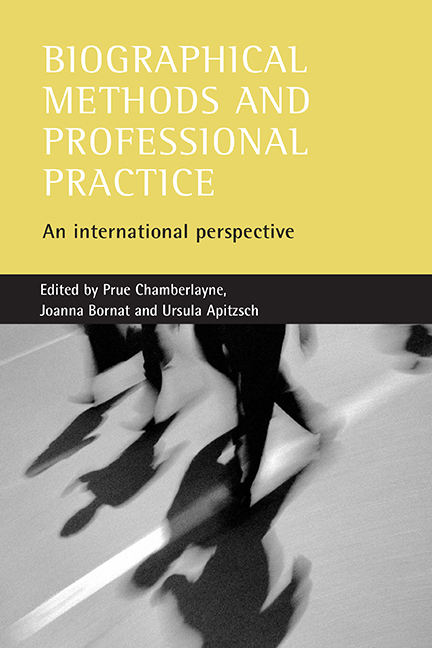Book contents
- Frontmatter
- Contents
- Notes on contributors
- one Introduction
- Part One Putting the subject into policy and practice
- Part Two Subjectivity in context
- Part Three Self-awareness in research and practice
- Part Four Recognising trajectories of disempowerment
- Part Five Biographical resources in education and training
- Index
fourteen - ‘Bucking and kicking’: race, gender and embodied resistance in healthcare
Published online by Cambridge University Press: 20 January 2022
- Frontmatter
- Contents
- Notes on contributors
- one Introduction
- Part One Putting the subject into policy and practice
- Part Two Subjectivity in context
- Part Three Self-awareness in research and practice
- Part Four Recognising trajectories of disempowerment
- Part Five Biographical resources in education and training
- Index
Summary
Concerns about how to work with and across differences of ethnicity, culture, language and religion are central to discussions on policy and practice development in the health and social care services in Britain (Alexander, 1999), where references to the need for cultural ‘awareness’, ‘sensitivity’ and ‘competence’ are commonplace. These concerns have taken on further meaning with the renewed attention to ‘institutional racism’ (Macpherson, 1999) in public sector services, and with the extension of race relations legislation (2000 Race Relations [Amendment] Act) to these services. However, despite the increasing attention being given to the need for culturally sensitive and anti-discriminatory professional practice, what is missing from British policy and professional education initiatives is any meaningful engagement with the complex relationships between lived, biographical experiences of race and ethnicity and needs for care. For example, how might social difference1 affect the ways in which professionals interpret and respond to the requests, silences, faces and bodies of service users? How might biographical experiences of race and ethnicity affect, and be affected by, the everyday, micro-interactions within services, such as those interactions that take place in relation to eating, toileting, washing and touching? I believe that these ‘tiny’ details of somatic experiences of race and ethnicity are critical in producing the nature and quality of intercultural care, and they are the focus of this chapter. By ‘somatic’, I am referring to how race and ethnicity (in interrelation with other differences such as gender, class and disease/disability) are ‘felt’ and given meaning, emotionally and physically, through the body, affecting the very fabric of care needs, practices and interpersonal relationships between professionals and service users.
Using the case study of Maxine, a black Jamaican service user drawn from my ethnographic research in a London hospice (Gunaratnam, 1999), I will argue that biographical approaches to race and ethnicity can play a significant role in enabling professionals to engage with the nuances of somatic experience. This argument is grounded in my experiences in education and training with health and social care professionals where I have used biographical narratives to make less abstract some of the rich, but often dense, theoretical work on the relationships between lived experiences of race and ethnicity and wider social discourses and contexts (for examples, see Brah, 1996; Hall, 1996).
- Type
- Chapter
- Information
- Biographical Methods and Professional PracticeAn International Perspective, pp. 205 - 220Publisher: Bristol University PressPrint publication year: 2004



